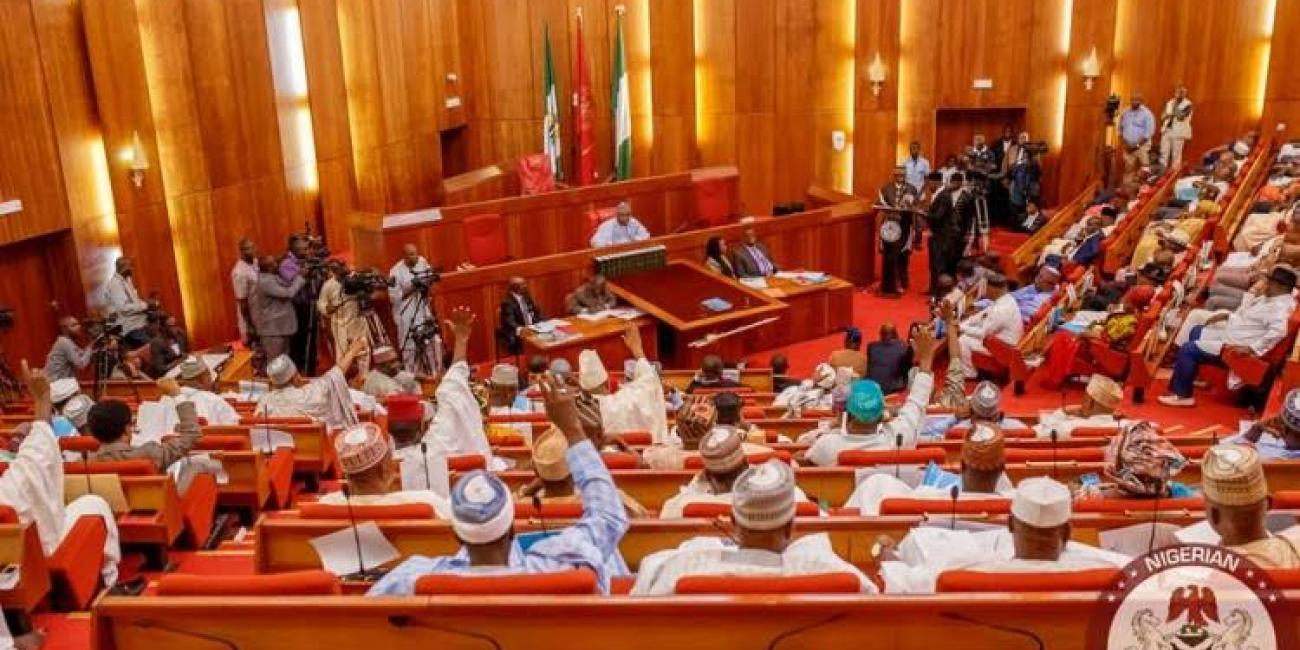The organisation’s analysis shows that 238 projects, each valued above N5 billion and totalling N2.29 trillion, were inserted with little or no justification.
The National Assembly has inserted 11,122 projects valued at N6.93 trillion into the 2025 Nigerian government Budget.

BudgIT, a leading civic technology organisation advocating for transparency and accountability in Nigeria’s public finance report reveals that what started as occasional irregularities in the budget has become a deeply rooted system of exploitation, with the National Assembly using the budget process to advance political interests rather than national development.
The organisation’s analysis shows that 238 projects, each valued above N5 billion and totalling N2.29 trillion, were inserted with little or no justification.
Furthermore, 984 projects worth N1.71 trillion and 1,119 projects valued between N500 million and N1 billion, amounting to N641.38 billion, were indiscriminately added, sparking concerns about their relevance and alignment with the country’s priorities.
Gabriel Okeowo, BudgIT’s Country Director, said, “The insertion of over 11,000 projects worth N6.93 trillion into the 2025 budget by the National Assembly is not just alarming—it is an assault on fiscal responsibility.
This trend, increasingly normalised, undermines the purpose of national budgeting, distorts development priorities, and redirects scarce resources into the hands of political elites.
Nigeria cannot afford to run a government of projects without purpose. We urgently need transparency, constitutional clarity, and a return to evidence-based planning that puts citizens, not politics, at the centre of the budget.”
The report highlights that 3,573 projects worth N653.19 billion were directly assigned to federal constituencies, while 1,972 projects valued at N444.04 billion were allocated to senatorial districts.
Significant anomalies include 1,477 streetlight projects worth N393.29 billion, 538 boreholes totalling N114.53 billion, 2,122 ICT projects valued at N505.79 billion, and N6.74 billion earmarked for “empowerment of traditional rulers.”
BudgIT also noted that 39 per cent of all inserted projects—4,371 projects worth N1.72 trillion—were forced into the Ministry of Agriculture’s budget, inflating its capital allocation from N242.5 billion to N1.95 trillion.
The Ministries of Science and Technology and Budget and Economic Planning also received bloated allocations of N994.98 billion and N1.1 trillion, respectively.
The misuse of agencies such as the Nigerian Building and Road Research Institute and the Federal Cooperative College, Oji River, was also emphasised.
These institutions were burdened with projects unrelated to their mandates, leading to inefficiency and waste. For instance, the Federal Cooperative College was assigned N3 billion for utility vehicles, N1.5 billion for rural electrification in Rivers State, and N1 billion for solar streetlights in Enugu State.
Despite BudgIT’s formal letters to the Presidency, Budget Office, and National Assembly under the “The Budget is a Mess” campaign, no institution has taken responsibility or responded to the findings. The silence from the Presidency remains particularly concerning.
BudgIT has urged President Bola Tinubu to exercise stronger executive leadership in reforming the budgeting process to align with the Medium-Term National Development Plan (2021–2025).
It has also called on the Attorney General and Minister of Justice to seek a constitutional interpretation of the National Assembly’s powers to insert capital projects without Executive approval. Anticorruption agencies such as the EFCC and ICPC have been called to investigate these insertions.
The organisation also appealed to citizens, the media, civil society, and development partners to demand accountability and reform, stressing that the 2025 budget must serve Nigerians’ interests rather than those of a privileged few.







